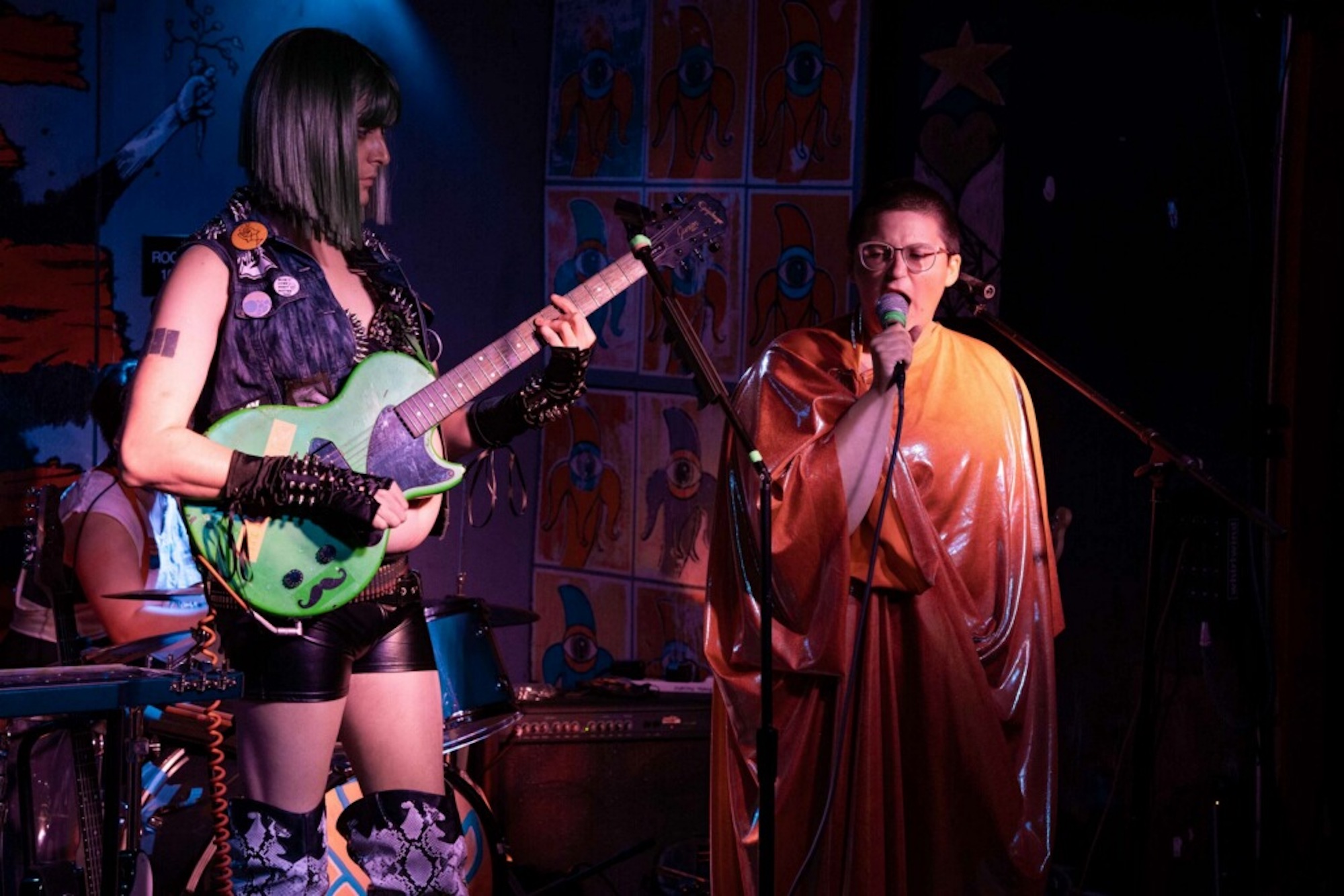
In what would be the lone bedroom of a small apartment in San Diego, the musician, guitar pedal builder, and anti-establishment artist known primarily as “Lucky (the monster)” has set up a hub of sorts for their multiple musical acts and guitar pedal business. Their small four-toothed mutt, Rocco, makes his way across the small room, wagging his tail between an array of guitars and mounds of electronic parts. It’s part mad scientist’s laboratory, part musical practice space, and part disorganized corporate headquarters for a rapidly growing online business — but that makes sense when you consider what Lucky’s day-to-day actually looks like.
A teacher by day, Lucky’s become known as the head of Demonic Machines, solo artist Great Big Thing Crawling All Over Me (a nod to the old punk song “Steelworker” by Big Black), and a driving force in San Diego’s latest “queer apocalypse doomgrass project” Fairies Wear Boots (best described as “Black Sabbath meets Bikini Kill”). So, the Alabama transplant stays busy when even when they’re not focused on creating guitar pedals that win over more musicians and critics around the world on a seemingly daily basis.
But all of this happened because a professor during Lucky’s final year of their MFA in writing program at UC San Diego wanted to get back into the music scene.
“She was the singer of [‘90s NorCal punk band] Blatz, and she randomly comes up to me one day like ‘Do you want to start a band?’” Lucky recalls. “I said ‘Yeah,’ because I’m from Alabama, and no one cool is from Alabama. But then she ends up bailing, and I’m left with a band that just sort of becomes my main focus at the end of grad school. I did such little writing in the last part of my writing MFA, but I got a band out of it.”
Through that now-defunct band, Lucky discovered guitar pedals. They bought a classic Pro Co Rat 2 distortion pedal, realized they could modify it with some slight tweaks, and then learned from a friend that they could build other effects pedals for a fraction of what they cost in the store — a major benefit for someone who didn’t have a luxurious post-grad school income yet.
Without any electrical or engineering background, Lucky learned from the trusty sources of YouTube and the rest of the internet, eventually learning how to translate complex schematics and advanced jargon into a language they could understand. From there, their skills continued to grow until they launched Demonic Machines in 2019, providing slightly altered or evolved versions of classic effects pedals, and then slapping Lucky’s humorous art on the enclosure — like a boost pedal called Hulk Booster with a cartoon version of Hulk Hogan as the Incredible Hulk, or the fuzz pedal that’s designed to look like mold.
[embedded content][embedded content]
“I don’t think I’m reinventing the wheel, but I don’t think many pedal builders are,” Lucky says. “I have certain mods that are just my signature mods — like I love to have bypassable tone controls, because I hate fucking tone controls and I’m also in a noise band. I’ll clone pedals all day, just so I can learn the circuit, but I typically don’t release a pedal unless I can add something to it.”
While Lucky’s pedals have earned a reputation for their audio quality and versatility, they also play into their creator’s general motto for their art. As someone with a stage presence inspired by Wendy O. Williams, Lucky often cites the late Plasmatics singer’s partner Rod Swenson and his belief that art isn’t high art unless it’s confrontational as one of the driving inspirations behind their own work — both on the stage, on Fairies Wear Boots’ upcoming EP, and in the workshop.
“I’ve always liked the ‘trickster’ gods in any mythology — really anyone that has humor about things,” Lucky says. “I was in this band in Alabama where we wore drag and played what I would call ‘heavy noisecore.’ It was so disruptive to this metal scene where everyone else sounded like Slayer and all had long hair and beards and wore all black. Throughout my life, I have always looked at whatever version of the establishment there was and gone ‘Hey, why are you the big guy that everyone respects?’ That definitely got me in trouble when I was younger and drank.”
Among the other aspects that set Demonic Machines apart from many of its competitors is the fact that Lucky brings actual LGBTQ representation to an industry where it’s lacking. While the music industry, in general, is fairly diverse as far as sexuality goes — particularly in certain pockets like punk rock — the world of guitar pedal builders is still fairly dominated by CIS white men. While Lucky can “enter stealth mode” and pass as one of them when needed, they still notice the distinct lack of diversity and seek out fellow outsiders like Aisha and Fiona of Loe Sounds.
“I’m from Alabama, so anything that happens to me out here pales in comparison to how my experience in Alabama was,” Lucky says. “I try to bring things up like ‘Why is there this huge gender disparity in pedal builders?’ and ‘Why are they mostly white dudes?’ but I also try to network with everybody. I have several friends who fit into that demographic. But when you meet someone like Loe Sounds, it’s like ‘Oh my God, another queer fucking pedal builder!’ I think our society has gotten to a point where we accept that transphobia and homophobia are unacceptable, so I don’t get a lot of that, but it is kind of a desert. Sometimes I face blatant transphobia — I had a guy harassing me on Facebook and then on my YouTube the other day — but most of the time it’s just people online assuming I’m one of them. It’s always ‘Great pedal, bro!’ and they’re trying to be cool or whatever, so I’ll gently correct people. It’d be worse to be misgendered and have them think it’s a bad pedal.”
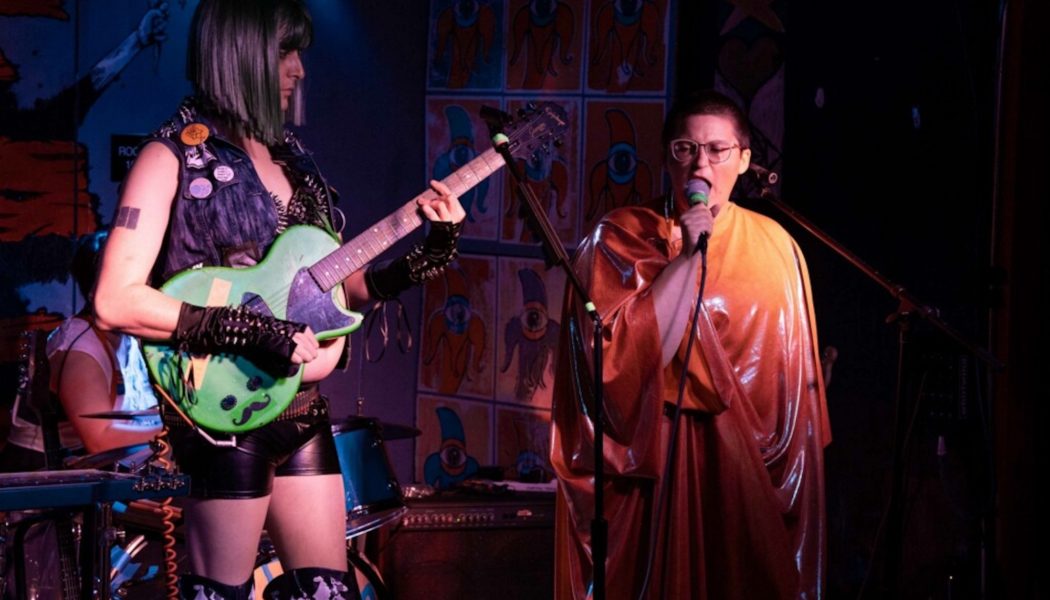



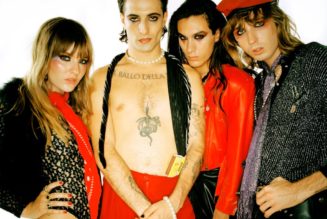

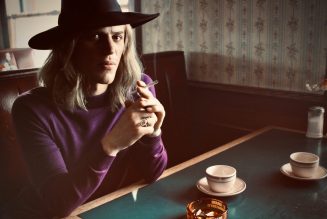

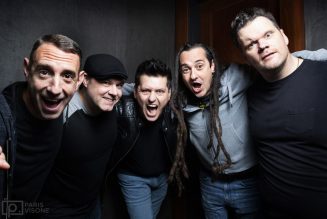


Tagged: INTERVIEWS, lucky the monster